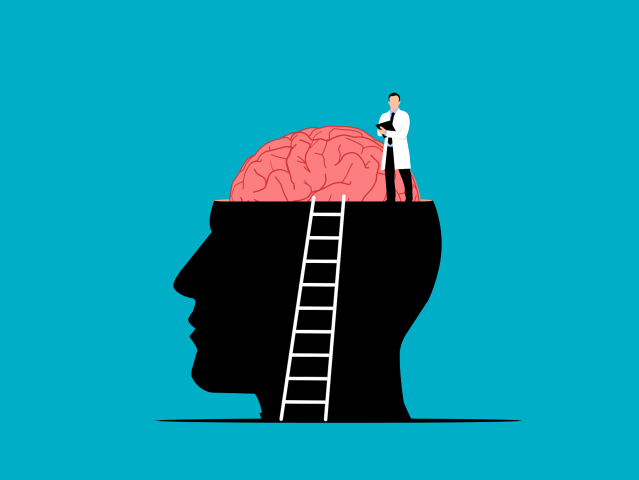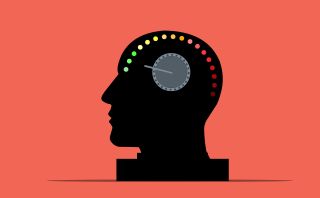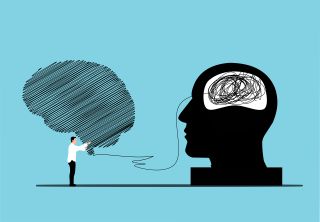Anxiety
4 Practices to Strengthen Your Mental Health
Simple strategies to promote mental wellness that you can start today.
Posted April 29, 2024 Reviewed by Devon Frye
Key points
- Regular exercise rewires your brain to combat stress and enhance memory, emotional regulation, and focus.
- Enhance emotional intelligence by reflecting on and labeling your feelings to bolster your mental health.
- Mindful walking boosts mental flexibility and resilience, increasing calm deep within your nervous system.
- Prioritize mental health check-ups, treating your brain with the same care with which you treat your body.

In today's era of doom scrolling and constant connectivity, it is sadly unsurprising that Americans' mental health is plummeting to new lows, with nearly one in three people struggling with depression. Mental health issues such as anxiety and depression not only take a toll on individuals but also cost the economy a staggering one trillion dollars annually in lost productivity and account for the majority of disability claims.
If you're among the millions wondering how to safeguard your mental well-being and bolster your mental strength both at work and at home, here are four practices you can implement starting today.

1. Prioritize Daily Exercise
If you only going to adopt one habit from this list, it should be daily exercise. When you want to improve your memory, when you need to boost your emotional regulation, when you want to increase your attention later in the day without a cup of coffee, or even if you want to prevent dementia and Alzheimer's disease, physical exercise consistently increases your mental health and wellness.
When you practice daily exercise, you rewire your brain and nervous system to overcome stress and protect yourself from depression and anxiety. Whether you go to the gym or just go for a long walk around your block, when you practice daily exercise, over time, your nervous system learns to strengthen your brain, increasing the power of your vagal brake, or calming system, so you quickly overcome anxiety and panic without having to think about it.

2. Take Your Emotional Temperature
Your ability to understand and predict your emotions throughout the day can significantly impact your financial and emotional well-being. By dedicating just five minutes each day to reflect on your current emotional state and what may be influencing it, you can boost your emotional intelligence.
Not sure where to start? Keep it simple by focusing on the emotions depicted in Pixar’s "Inside Out." Based on the life work of Dr. Paul Ekman, the film shows how at any given moment, you are likely feeling some combination of universal non-verbal emotions: happy, sad, disgusted, angry, and fearful. It’s common to feel multiple emotions at the same time, so don’t worry about focusing on one emotion—try to label as many as you can pick up on when you take your emotional temperature.
Want to try it? Take a moment and reflect on the following questions:
- What am I feeling in this moment?
- What else am I feeling in this moment?
- What might be happening in this moment that might be creating these emotions?
- What do I want to feel for the next few hours?
The key to taking your emotional temperature is learning to accept whatever emotions you are feeling without judgment. Acceptance can be built like a muscle—the more you practice taking your emotional temperature, the easier acceptance becomes.

3. Practice Mindful Walking
Mindfulness practices are any activities you do that allow you to focus your attention on one thing without judgment. Mindfulness practices can be like mental fitness boot camps that add layers of powerful muscle to your nervous system, boosting your mental flexibility and resilience so you can effectively overcome anxiety and stress.
When you practice mindfulness, you train your nervous system to more quickly calm, relax, and focus your mind when you are hit with stress and anxiety. In fact, some believe that mindfulness practices are so powerful that they are standard training for Navy SEALs and Army Rangers to operate with optimal efficiency under direct fire.
Don’t believe the hype—you don’t need a special class, expensive app, military training, or Buddha-level patience to use mindfulness. You just need to find five minutes to walk by yourself through a green space like your backyard, a park, or an athletic field. Known as mindful walking, this is the practice of walking slowly and paying attention to the different sensations in your heel, arch, and toes as you take a step and then another step.
If you want to make it easier to focus, take your socks and shoes off and notice the different textures and feelings of the grass as your foot makes contact with the ground within a step. If your mind wanders, that’s totally normal—just bring your attention back to the sensations in your feet.

4. Get a Mental Health Physical
One of the biggest mistakes people make is treating physical health differently than mental health. Many people understand they need to go to the doctor yearly for a baseline check of how their hardware (physical health) is doing but never bother to do the same for their software (mental health) unless they crash into anxiety or depression.
The best thing you can do to bolster your mental strength is to get an annual mental health physical from a licensed mental health provider like a counselor, therapist, or psychologist. Just like you make sure your computer gets virus checks and updates to its software, you need to follow up on your mental health to track and assist you with any difficulties or problems you might encounter.
You might even start a behavioral medicine treatment like therapy to help you overcome anxiety and depression so you can thrive at work and home. People who complete therapy tend to gain stronger confidence, sense of self, life satisfaction, sexual satisfaction, career and income growth, and protection from significant mental illness compared to those who never receive treatment.
Don't worry—even if you only start one of these practices, you will begin building your mental strength. When you make any time for your mental wellness, you make a down payment on later resilience and mental health so that when you are faced with anxiety and stress, you will be able to power through to meet your goals.
If you're looking for more ways to rewire your nervous system and increase your mental strength, check out my latest book When Panic Happens.




